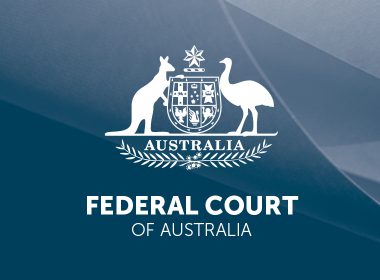Key decisions
- Stolyar v Scott (Trustee) [2023] FCAFC 61
- LPDT v Minister for Immigration, Citizenship, Migrant Services and Multicultural Affairs [2023] FCAFC 64
RESULTING TRUSTS
Presumption of resulting trust arises where a person provides the purchase money for property which is conveyed into the name of another person – the proceedings below had been fought as a contest between two opposing views on the source of the purchase monies – a party on appeal is generally bound by the conduct of its case at first instance – it was not open to the appellants to contend on appeal that the presumption of resulting trust did not arise or was rebutted
Stolyar v Scott (Trustee) [2023] FCAFC 61 (Banks-Smith, Downes and Jackman JJ)
This was an appeal (largely) from Scott (Trustee), in the matter of Stolyar (Bankrupt) v Stolyar [2022] FCA 691. In those proceedings, a trustee in bankruptcy of a bankrupt married couple (‘Trustee’) sued the mother of the husband and the mother’s company, Fanchel Pty Ltd (‘Fanchel’). The Trustee sought relief in relation to recovering the proceeds of share sales and interests in several Sydney properties that he contended were held by the mother and/or Fanchel on trust for the married couple or had otherwise been transferred by the mother and/or Fanchel in a manner that was void against the Trustee.
The primary judge found that property purchased in the mother’s name was held on resulting trust for the couple on the basis that the couple had contributed to its purchase price. In doing so, the primary judge noted that the presumption of a resulting trust arising from the payment of purchase money of property may be rebutted by evidence to the contrary. However, the mother and Fanchel had not led any such evidence, but instead, denied that various transactions occurred as the Trustee had alleged. The primary judge accepted the Trustee’s allegations, and ruled the assets were held by the mother on trust for the Trustee (at [26]).
The primary judge also found there was an arrangement (‘Share Arrangement’), whereby the Canchel Partnership (a partnership related to the couple) would sell to Fanchel, shares in various companies it owned in order to reduce the Canchel Partnership’s tax liability, and the amount Fanchel owed for these shares was to be paid to the husband. The Court found that some shares and their proceeds were held on trust by Fanchel for the husband pursuant to the Share Arrangement, and these were in fact paid by Fanchel to the mother instead of to the husband who was bankrupt at the time. Therefore, Fanchel committed a breach of trust and was liable to account to the Trustee for the amount paid to the mother. The mother was personally liable to account to the Trustee for those funds, having received trust property with knowledge of the breach of trust, by reason of the husband’s knowledge as her agent being attributed to her (at 51]).
The mother and Fanchel appealed, and the Trustee cross-appealed. There were numerous grounds of appeal. However, the appellants identified three principal submissions:
- The presumption of a resulting trust was either rebutted or did not arise;
- The resulting trusts found by the primary judge should have been in favour of entities other than the married couple; and
- The Share Arrangement was merely a contractual arrangement rather than one creating a trust.
The Court’s findings
Banks-Smith, Downes and Jackman JJ
Banks-Smith, Downes and Jackman JJ produced a joint judgment. With respect to the first principal submission, their Honours noted that at the trial, there was no dispute about the principles applicable to establish a resulting trust and summarised them (at [55] – [58]). They also noted that between the date of the first instance decision and the appeal, the High Court handed down Bosanac v Commissioner of Taxation [2022] HCA 34 (‘Bosanac’), and the decision was the subject of much debate.
The appellants submitted that the primary judge had wrongly focused on the source of the purchase money of the various properties as determinative of the question whether a resulting trust arose. They pointed to passages in Bosanac describing the presumption as ‘weak’ and submitted (among other things) that it arose only where there was no evidence revealing the objective intention of the person providing the purchase funds at the time of the purchase, or where the presumption resolves a factual contest where that evidence is uninformative or truly equivocal.


